On Vulnerability and Revealing Your Scars
How opening up about a taboo topic led to a stunning pottery collection
I once wrote an article about my father. Or, better put: the lack thereof. It was an intimidating essay to produce. I was afraid of what would happen if I revealed such a vulnerable side of myself.
The article went on to be published in Wit & Delight and is called The Perennial Nature of the Relationships that Matter. In it, I open up about how growing up with an absentee father affected my self-worth and relationships. It was scary to share, but it was also cathartic to write, as I suspect is much of the art we create.
Shortly after publication, Wit & Delight reposted a story on Instagram, which happened to be a link to my article. I did a couple of click-throughs and found myself looking at an artist’s immaculately curated Instagram page: Krista Coons. I was awe-struck. My words resonated with her, and she shared them with her devoted audience.
I responded to her story and thanked her for sharing it, which sparked a months-long journey to I Held You Once: a collaboration between an artist and an author — poetry, vessels, and busts honoring the perennial nature of friendship.
As it turned out, Krista was working on a three-part project and was thinking about collaborating on the third part, whereby, in her words, she would make “sculptures with ceramic florals and botanicals inspired by your words.”
My words? The ones I strung together and feared anyone actually reading?
Yes — those ones. Krista wanted to create art based on the concept of my article, which is that the relationships that matter are perennial.
After some Zoom meetings and deliberating, we decided that I would write 12 poems about friendships; whatever struck me, I could write.
This was the first poem I wrote:
I tasted the rain last night.
I heard it before I saw it. It dappled the dry petals
of the hydrangeas and rustled their brown leaves.
My feet bare, I walked into the cold grass.
I opened my mouth and looked to the stars.
And I knew —
My hands
My head
My heart knew that I would see you again soon.
I sent it to Krista to make sure I was on the right track, and after an enthusiastic YES, I went on to write 11 more, resulting in a series of poems named after my favorite women in literature1: Marion, Donatella, Zadie, Pippa, Clarice, Elena, Delphine, Ottessa, Ruth, Maeve, Robin, and Camilla. (If you have guesses as to which literary heroes these are named after, please share in the comments! They are a combination of authors and characters in my favorite books.)
In the weeks that followed, Krista produced busts, which we call goddesses, inspired by each of the poems.
And as if those goddesses weren’t enough of an artistic feat, she created a vessel to go with each one.
Then, finally, Krista printed my poems on a slab of clay. Remember the first poem I wrote? Here it is in its final form:
This collection, which Krista named I Held You Once after the opening line of my Donatella poem, came to fruition because I one day decided to let go of my ego and share something that scared me. Had she and I not connected, the third part in Krista’s beautiful series would have still been incredible. But it is a wonder to think about the causality here. I did this, so she did that.
Is there anything more beautiful?
For the curious among us, here is the article:
The Perennial Nature of the Relationships that Matter.
I don’t have an immense amount of friends. I’m not the kind of person who acquires a friend during each new phase of my life, collecting them along the way like souvenirs from places I’ve visited. Nor would I ever have a birthday party with fifty of my closest friends and family members—and I like it this way. Instead of many, I have deep.
A few of my closest friends have been in my life since before I could even drive a car. We grew up together, made mistakes with one another, and had the kind of disparaging arguments that would shatter a relationship with even the slightest fracture. But these relationships of mine do not have fractures. No matter what happens between these friends and me, we will remain friends. It has been decided, and it’s never going to change. The same goes for some of the relationships I’ve made in adulthood, and for this, I am grateful—if not a little bit befuddled.
Why does it befuddle me? Because for a long time, longer than I like to admit, I allowed myself to believe that the foundational relationships upon which we build our lives can thrive and then they can wilt and eventually die; they can surrender to the harsh winter that all relationships inevitably go through. I allowed myself to believe that the relationships that mean the most to me are annuals and, after a cold spell, I would need to replenish my annuals, replant my relationships. But this is not the case. The relationships that matter in life are perennials.
The belief about faltering relationships comes from the erratic presence of a so-called foundational relationship in my life: my father. My father, who was supposed to be one of the two sturdy pillars in my upbringing. My father, whom society tells me I can trust like nobody else, who will be sturdier than all others, who will not crumble no matter what I say or do. The nature of our relationship was so fractured during my upbringing, and indeed far into my adulthood, that I began to wonder what it was about me personally that made him so unreliable, so conditional in his love. Was it me? Was I so easy to abandon?
But then—through no small amount of therapy and reading—I noticed what I had all around me: beautiful, powerful, dynamic relationships, the likes of which not everybody is fortunate enough to have. And these relationships that I’d been developing and nurturing turned out to be the ones I really needed; the ones that remained and re-bloomed.
I think there is a fault in the structures we place around relationships. Sometimes the relationships that are supposed to be foundational just aren’t. And sometimes you will find what you need from those foundational relationships in other places—in friends, colleagues, even your children. As it turns out, a father is not the only person from whom a woman can learn about confidence, boundaries, and self-worth.
My father did not come to my wedding. But do you know who did? A dozen of my closest friends, the members of my enormous extended family whom I know best, and my mother in a spectacular black dress, whose train trailed behind her as she walked me down the aisle, giving me away like a loving father so often does. I did not lack that cold December day as the lights beyond the expansive windows pierced the blackness outside. Rather, I felt abundance. I had around me the faces of those who have been there for me again and again, despite distance, despite time apart, despite disagreements or periods of misalignment.
I do not lack, but that does not mean it’s always easy. The anxiety I experienced regarding my relationships used to manifest itself in peculiar ways, like taking inventory of people I didn’t hear from on my birthday, for example. I always knew I’d have one tick, so why not tally up the other important people who’d forget, since I was, in my head, apparently forgettable? I try to not let this happen anymore, and it’s still not easy, despite my acknowledgment of how fortunate I am to have the relationships I do have.
I frequently see trigger warnings on social media, particularly dealing with pregnancy and baby loss. Sometimes I wish there would be a trigger warning before photos celebrating great fathers on their birthdays. Or before beautiful Father’s Day posts. Or before photos of women embraced in a hug by their fathers on Christmas. Images like these always give me pause, still to this day, but I allow myself to briefly dip into that emotional valley because my emotions are valid, and no matter how much peace I have made with my relationships, sometimes I just get upset that my father chooses not to be here. And I now know that’s okay.
What I do next, though, I am so lucky to be able to do, and that is to account for those inconceivable souls who are here, who have not stopped loving me no matter what. For these relationships, I feel indebted to the gaping absence I’ve felt my whole life, for I was given the room to fill that void with what suits me. I’ve tended to my garden and I have created space only for perennials, which I know, no matter the cold, the gray, the frost, will bloom again.
They will always bloom, because they always have. That is just what perennials do.
That article wasn’t easy to write. It was even more difficult to share. But I wrote it, I shared it, and from it blossomed something glorious.
Take this as a reminder that your stories matter. Your art matters. Share your work. Get vulnerable. You never know what kind of beauty will meet you on the other side.
Thank you for reading. Love,
Words on Words is a free newsletter about books that hits inboxes on Thursdays. If you have comments, suggestions, questions, or recommendations, please leave a note below!
I named all but one, which Krista named herself — Delphine.



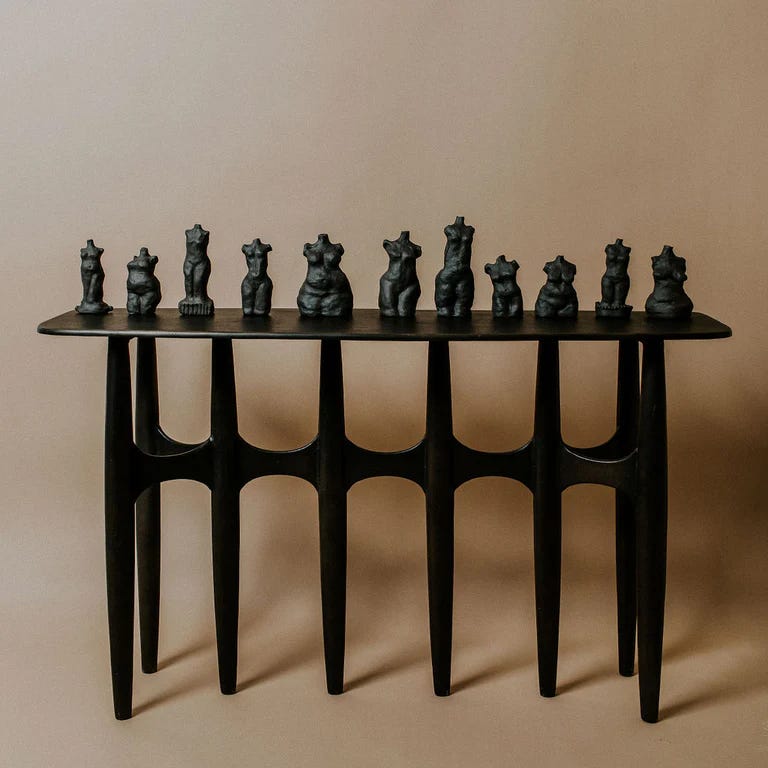
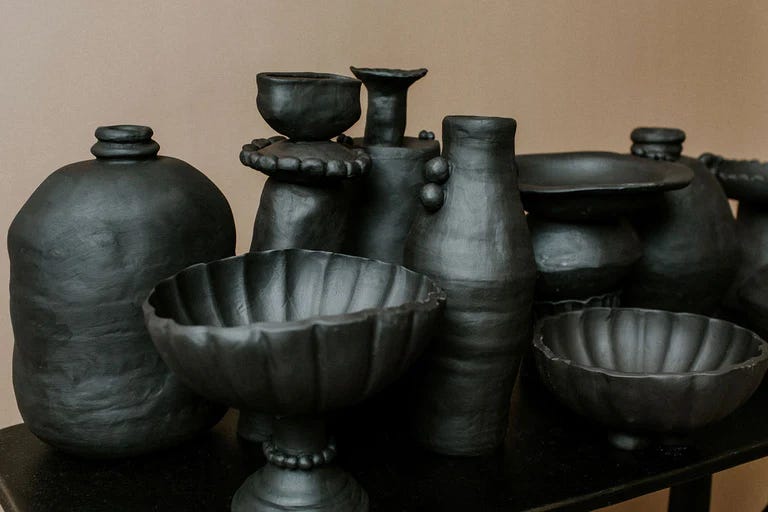
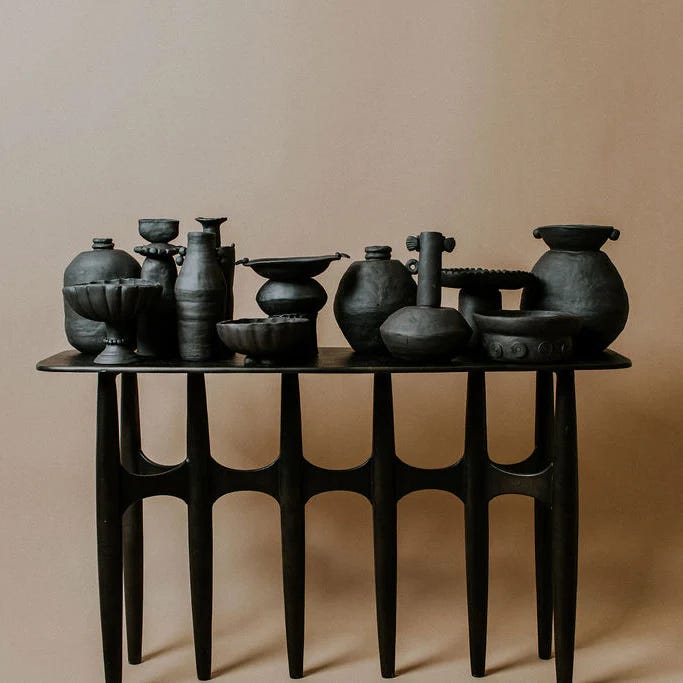
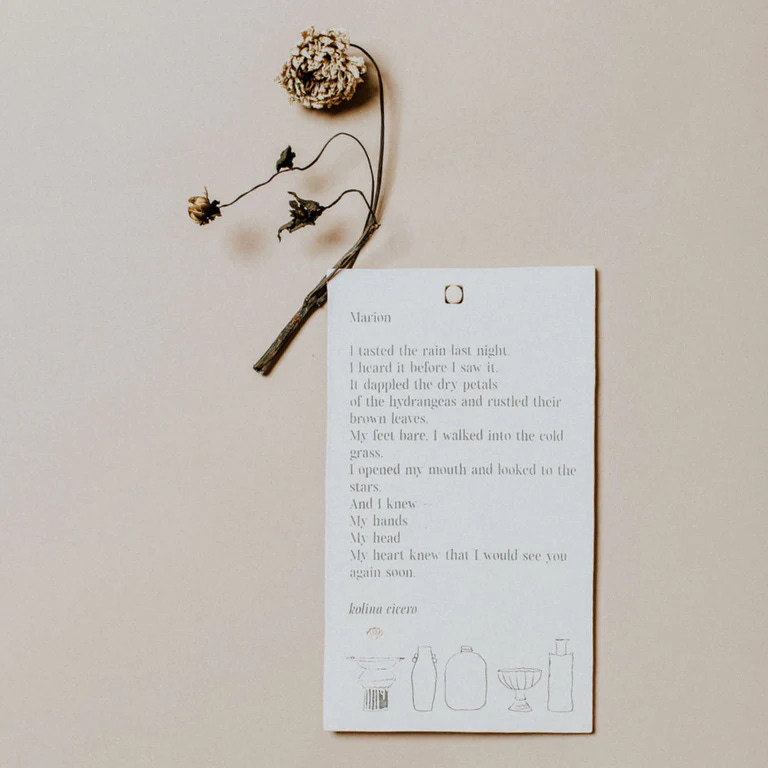

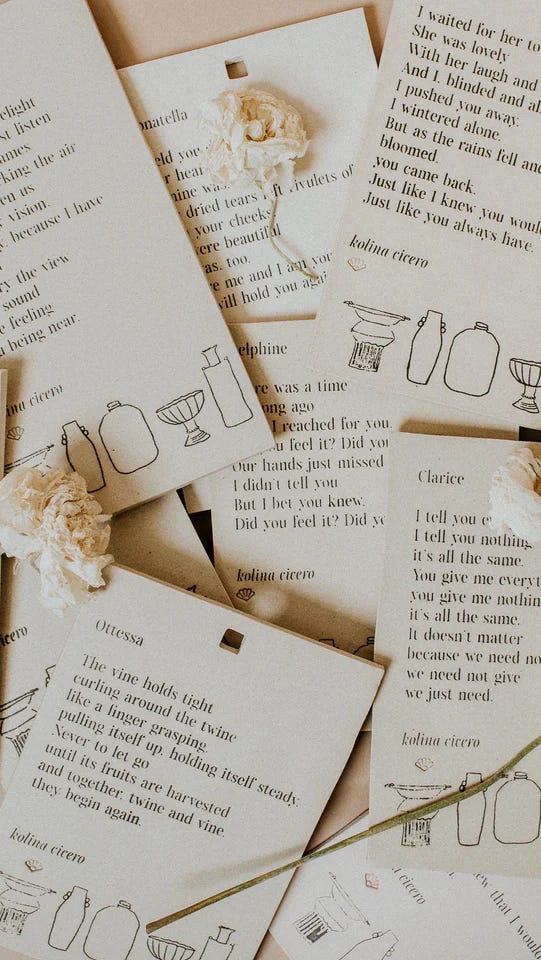


That is sooooo cool - so true how taking the chance to open up can be a wonderful thing!